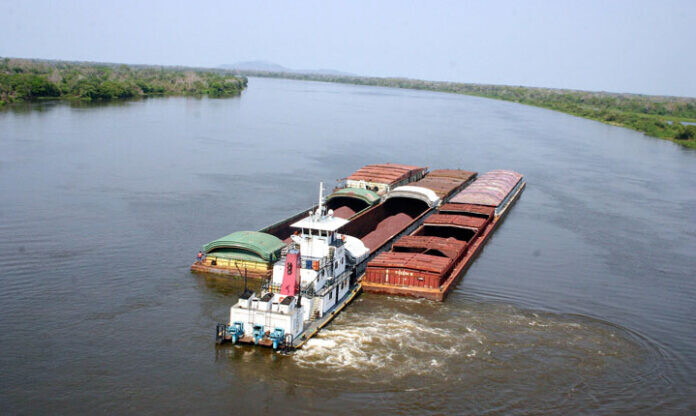
ROSARIO, Argentina - Barge traffic carrying Paraguayan soybeans to Rosario, Argentina, faced delays on Tuesday (April 1st) due to sediment accumulation on the Paraguay River, according to transport and crushing associations from both countries.
Argentina, the world's largest exporter of soybean oil, relies heavily on Paraguayan soybeans during this period as its own harvest has concluded while Argentina's is just beginning this month.
The sediment buildup occurred at the confluence of the Paraguay and Bermejo Rivers, near the Parana River, which barges utilize to reach Rosario.
Gustavo Idigoras, president of Argentina's CIARA-CEC grain exporters chamber, stated that the delays were disrupting the flow of barges heading to Argentina.
Argentina's grain processing industry also purchases soybeans from domestic producers. However, recent uncertainty in currency exchange rates has led Argentine producers to hold onto larger volumes of their harvest than usual.
Raúl Valdez, president of Paraguay's CAFyM river transport chamber, told Reuters that the delays had also affected iron ore exports heading to Brazil.
Valdez added that the river's condition had improved in recent days due to rising water levels and dredging efforts.
Meanwhile, Paraguay's soybean exports saw a 14.2% decrease in the first two months of 2025 compared to the same period last year.
Importance of the Paraguay River: The Paraguay River is a crucial waterway providing maritime access for Paraguay and Bolivia, vital for the transport of agricultural products and mineral resources. Notably, Paraguayan soybeans are transported via this river to processing plants in Argentina, where they are processed into soybean oil and soymeal for export.
Current Status of Argentina's Soybean Industry: Argentina is a global leader in soybean processing and exports, holding a significant position in the soybean oil and soymeal markets. Argentina's soybean processing industry relies heavily on both domestic production and soybeans from neighboring Paraguay.
Impact of Exchange Rate Fluctuations: Argentina's volatile exchange rate is a factor causing farmers to delay selling their harvested soybeans. There is a tendency to hold onto inventory in anticipation of more favorable exchange rate movements in the future.
Climate Change and River Levels: In recent years, South America has experienced frequent extreme weather events, including droughts and floods, due to climate change. Fluctuations in the Paraguay River's water levels may also be affected by these climate changes, posing a continuous threat to river transport.
Ripple Effects of Logistics Disruptions: The transportation delays on the Paraguay River are expected to cause short-term difficulties for Argentina's important soybean processing industry. The extent and duration of the impact will depend on future changes in river levels and the progress of dredging operations. These disruptions could also potentially affect price fluctuations in the international soybean oil and soymeal markets, and increased supply chain instability could lead to higher food prices.
This disruption on the Paraguay River due to sediment buildup appears set to create immediate challenges for Argentina's vital soybean processing sector. The degree and duration of these effects will likely be determined by future river level changes and the progress of dredging work.
[Copyright (c) Global Economic Times. All Rights Reserved.]




























